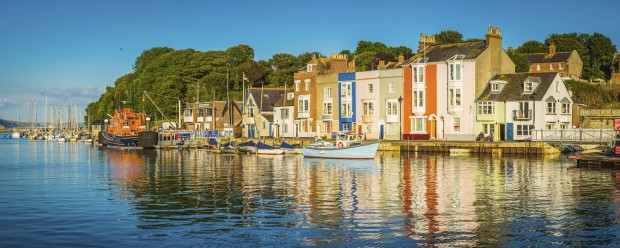The European Maritime and Fisheries Fund (EMFF) is funding up to six groups to deliver community led local development in England. These Fisheries Local Action Groups, FLAGs, will use the knowledge of local stakeholders to tackle fisheries issues at a local level. The MMO, which administers the EMFF in England recently chose a number of groups to move to the next stage of the FLAG selection process.

Rhiannon Jones, Dorset Coast Forum Officer explains the journey so far for the Dorset Coast Forum.
Coastal partnership
The Dorset Coast Forum (DCF) is a coastal partnership that has over 20 years’ experience in promoting the social, economic and environmental benefits of the Dorset coast and its surrounding seas. We are a small team of people, hosted in the Dorset County Council offices, who work with over 260 organisations – that equates to over 700 coastal and marine members. Independence, neutrality, trust and partnership working is what drives us and our success . We were really thrilled when we heard the Dorset and East Devon FLAG had been successful in stage one. Having a FLAG in place will make a real difference to our fisheries and fishing communities.
We were originally approached by several of our members who felt that the DCF were the right organisation to help form a FLAG in the local area. It would involve a lot of work in a short space of time so our first job was to hit the road and speak to members of the local fishing communities in Swanage, Weymouth, Portland, West Bay, Lyme Regis, Beer and Axmouth. We asked them if they thought a FLAG would be a good idea and if so, what they needed to help boost them economically, be sustainable and adhere to the CFP reforms.
Time to talk
We met with fishermen associations, processors, restaurateurs, retailers, aquaculturists, fisheries and aquaculture scientists, Seafish and harbour masters in order to involve as many sectors as possible and build on our knowledge of where a FLAG can help along the Dorset and East Devon coast. After speaking to all these people, we saw the clear need and support for a FLAG so we decided to submit an expression of interest.
The main areas where the FLAG will help is to establish associations or groups where they are needed to provide a shared vision and voice; encourage cross-sector collaboration; provide enhanced coordination between sectors and improve understanding of how people can work together. An example of one need in our area is to fill a gap in the crab processing market in order to ensure fishermen have somewhere to take their catch so it can be sold on. With larger scale businesses moving into the area, we want to help boost and connect local supply chains as well.
Aquaculture
Aquaculture development is another key area and an example of one of the needs that came out our meetings was for an aquaculture hub where budding aquaculutrists can develop skills and get support for their business development.
Although we are a small team, we feel that taking the time to meet face to face and seeing how these businesses work first hand is invaluable to getting the right people involved and gaining support for any group or project. The positive result that we got was due to the input of everyone involved and the clear difference that the FLAG could make by bringing local people together to make a difference to their communities and fisheries. We are looking forward to the next stage and developing our Community Led Development Strategy for Round 2. Becoming a FLAG is a big catch for us and now it’s time to land it.